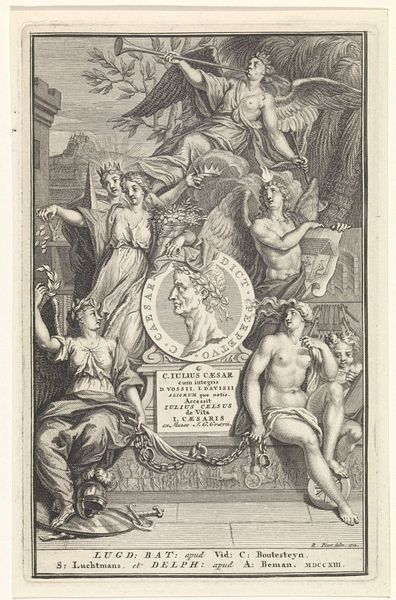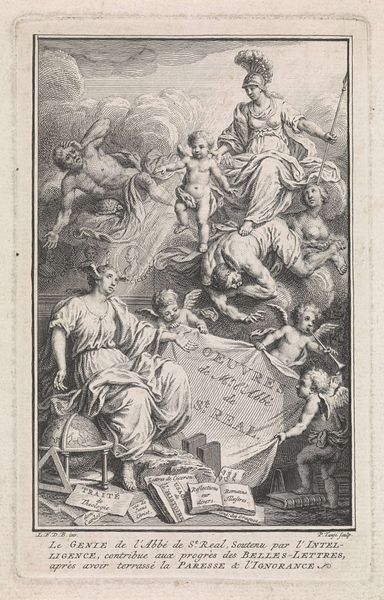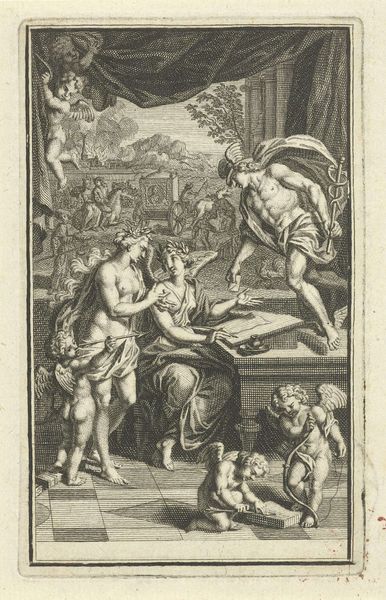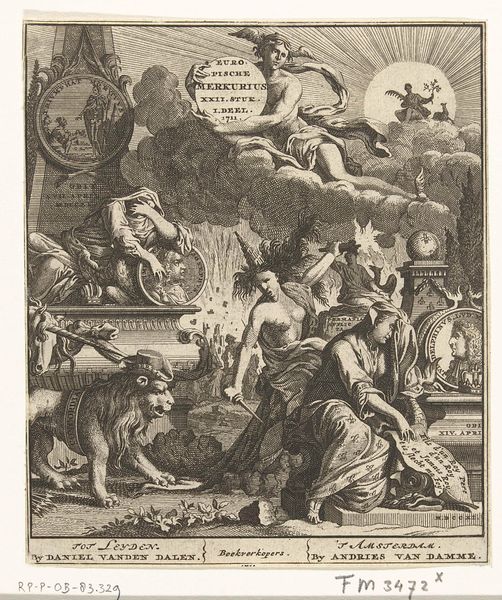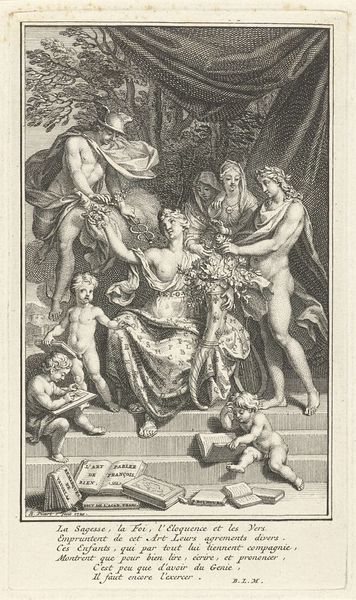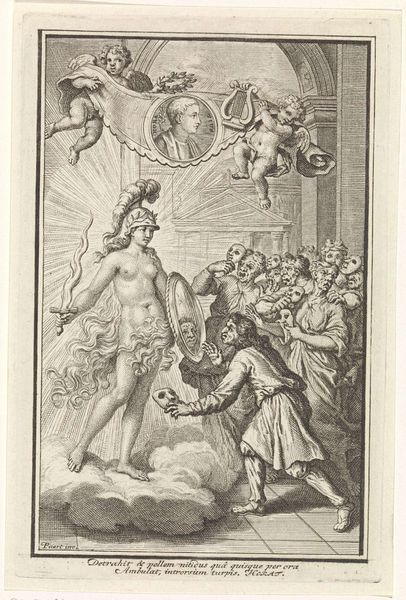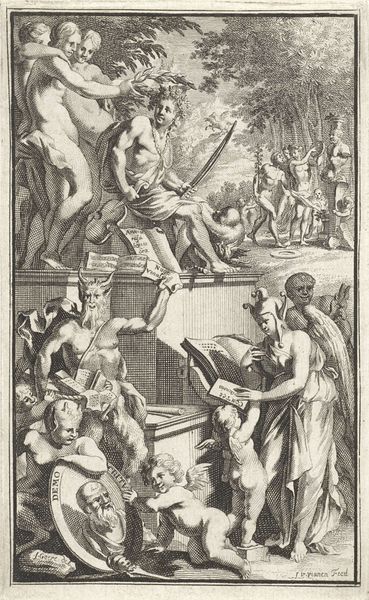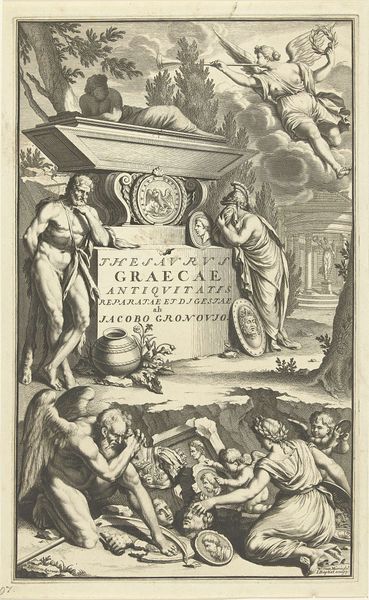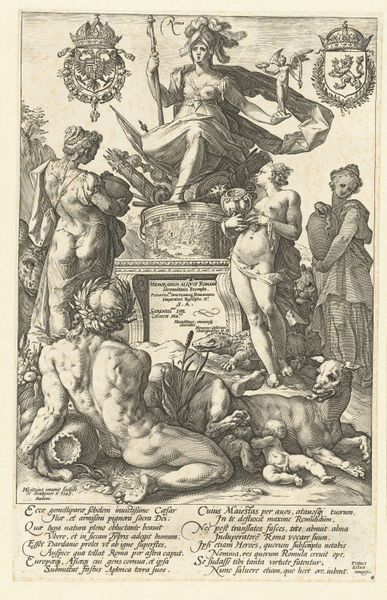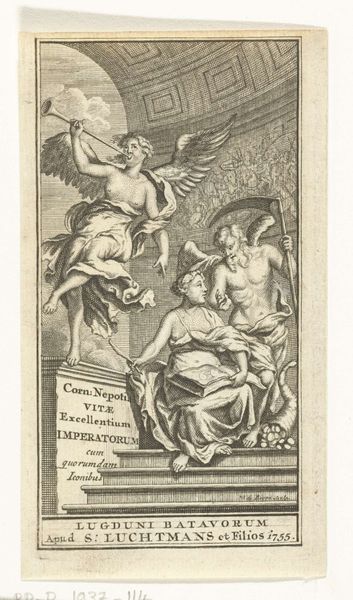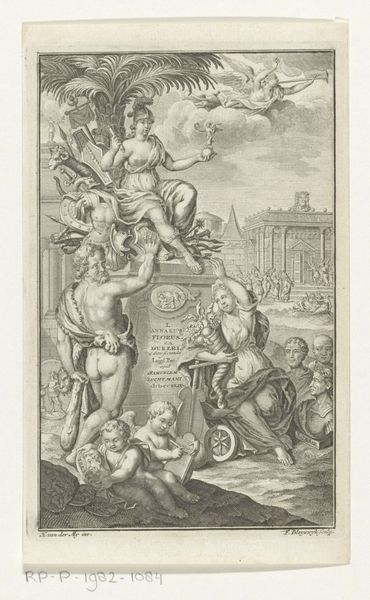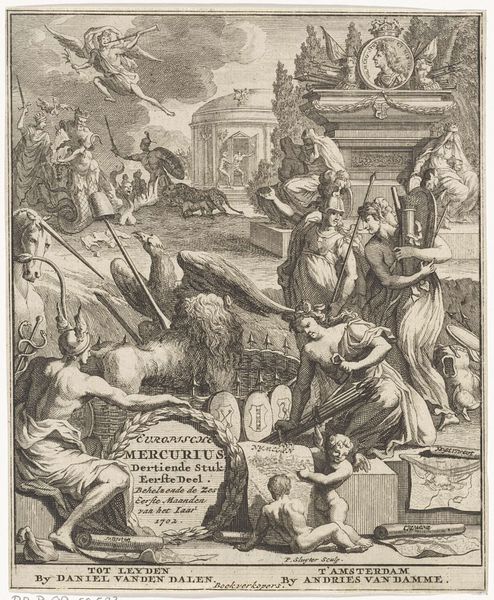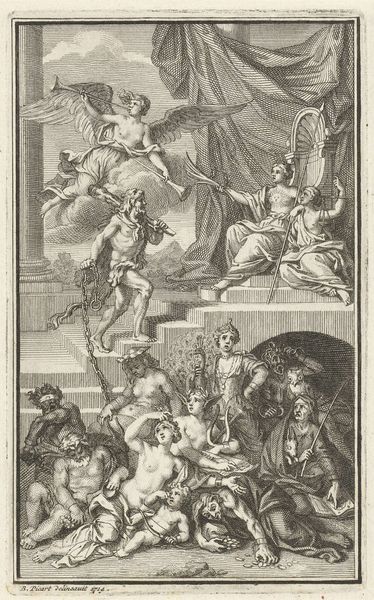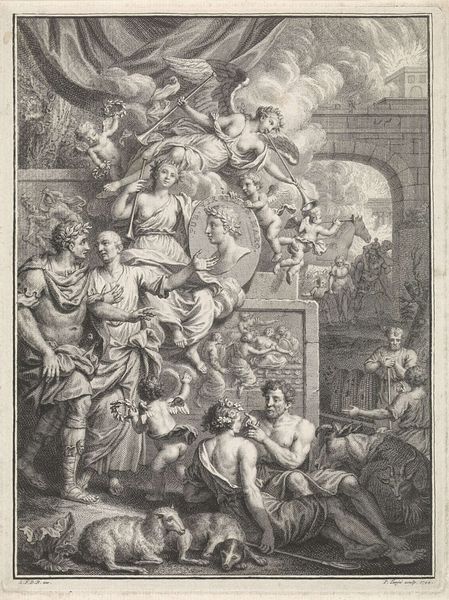
engraving
#
allegory
#
baroque
#
dutch-golden-age
#
old engraving style
#
figuration
#
history-painting
#
nude
#
engraving
Dimensions: height 162 mm, width 104 mm
Copyright: Rijks Museum: Open Domain
This print, "Waarheid beschrijft de levens en daden van Nederlandse schilders," was made by Pieter Tanjé in the 18th century. It’s an engraving, meaning the design was carefully incised into a metal plate, likely copper. Ink would have been applied, then the surface wiped clean, leaving ink only in the grooves. Finally, paper was pressed against the plate to transfer the image. The precision and detail of the lines are striking. Consider how the engraver meticulously created the textures of the figures’ skin, drapery, and the surrounding objects. The controlled, repetitive labor involved in engraving allowed for the wide distribution of images. This was crucial in the 1700s, when prints like this played a vital role in disseminating knowledge about art and culture. Engravings like this one, though seemingly distant from our contemporary understanding of "art," highlight how skilled craft practices have shaped the world of art. Tanjé's print makes you rethink traditional distinctions between fine art and craft.
Comments
No comments
Be the first to comment and join the conversation on the ultimate creative platform.
